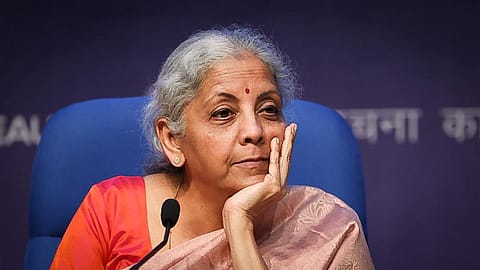India will move ahead on Middle East Corridor; has long-term implications: FM
Sitharaman says the India Middle East Corridor (IMEC) project has long-term implications for the entire region up to Europe

Clearing the air on uncertainty over the newly envisaged India Middle East Corridor (IMEC) project due to the US–Iran proxy war in the Red Sea, Finance Minister Nirmala Sitharaman today said India will take the project forward in all its contours. Notably, the minister mentioned about the project in the interim budget speech today.
Addressing a press conference after the tabling the Budget 2024, Sitharman said, “It has been announced and we are taking it forward. There are disturbances in the Red Sea area and the Middle East. But this is a project which has long-term implications for the entire region up to Europe as this also includes Europe. Yes we will be taking this project forward. We will take this ahead in all its contours."
The project was mentioned in the Interim Budget 2024 speech in the context of the G20 Presidency, which FM said was done in a very difficult times for the world. “The global economy was going through high inflation, high interest rates, low growth, very high public debt, low trade growth, and climate challenges. The pandemic had led to a crisis of food, fertiliser, fuel and finances for the world, while India successfully navigated its way. The country showed the way 10 forward and built consensus on solutions for those global problems,” she says.
“The recently announced India-Middle East-Europe Economic Corridor is a strategic and economic game changer for India and others,” FM says in the speech.
Prime Minister Narendra Modi and US President Joe Biden today announced the India-Middle East-Europe economic corridor (IMEC) on the sidelines of the ongoing G20 summit in New Delhi in September last year.
IMEC aims at unlocking greater investment for infrastructure development and strengthening connectivity in its various dimensions between India, Middle East and Europe. The IMEC comprises an Eastern Corridor connecting India to the Gulf region and a Northern Corridor connecting the Gulf region to Europe. It will include a railway and ship-rail transit network and road transport routes.